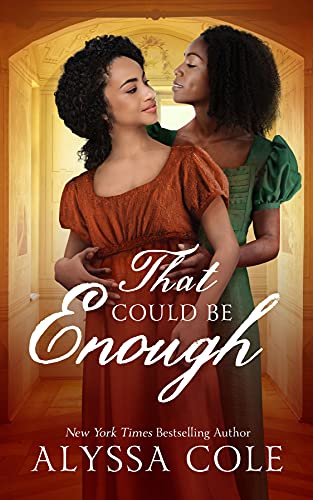Amazon Affiliate Link | Bookshop.org Affiliate Link The Cybernetic Tea Shop has been one of my comfort reads for years now, one of those stories I can reread over and over. Clara Gutierrez is a technician for Raises — small, animal-shaped robotic companions with a limited range of intelligence and emotions. She doesn’t like settling downRead More
Cath reviews That Could Be Enough by Alyssa Cole
Mercy Alston is a servant to Eliza Hamilton — yes, that Eliza Hamilton — and most of her work consists of assisting Eliza with her research into preserving Hamilton’s legacy. Her life is boring, quiet, and predictable, and at this point she prefers it that way. She’s been burned too many times by letting herselfRead More
Cath reviews Perfect Rhythm by Jae
Amazon Affiliate Link | Bookshop.org Affiliate Link Leontyne “Leo” Blake, stage name Jenna, has it all. She’s a world-famous pop star just wrapping up a world tour. Everybody knows her songs, her name (well, sort of). She’s even out as a lesbian and still enjoying her popularity. Then, just as she walks off stage atRead More
Cath reviews The Space Between Worlds by Micaiah Johnson
Amazon Affiliate Link | Bookshop.org Affiliate Link Cara can travel between parallel worlds – but only because her life has been cut short on those other worlds, by disease or turf wars or a million other things. On 372 parallel worlds in total, to be exact. But on this world, Cara’s survived, and she’s beenRead More
